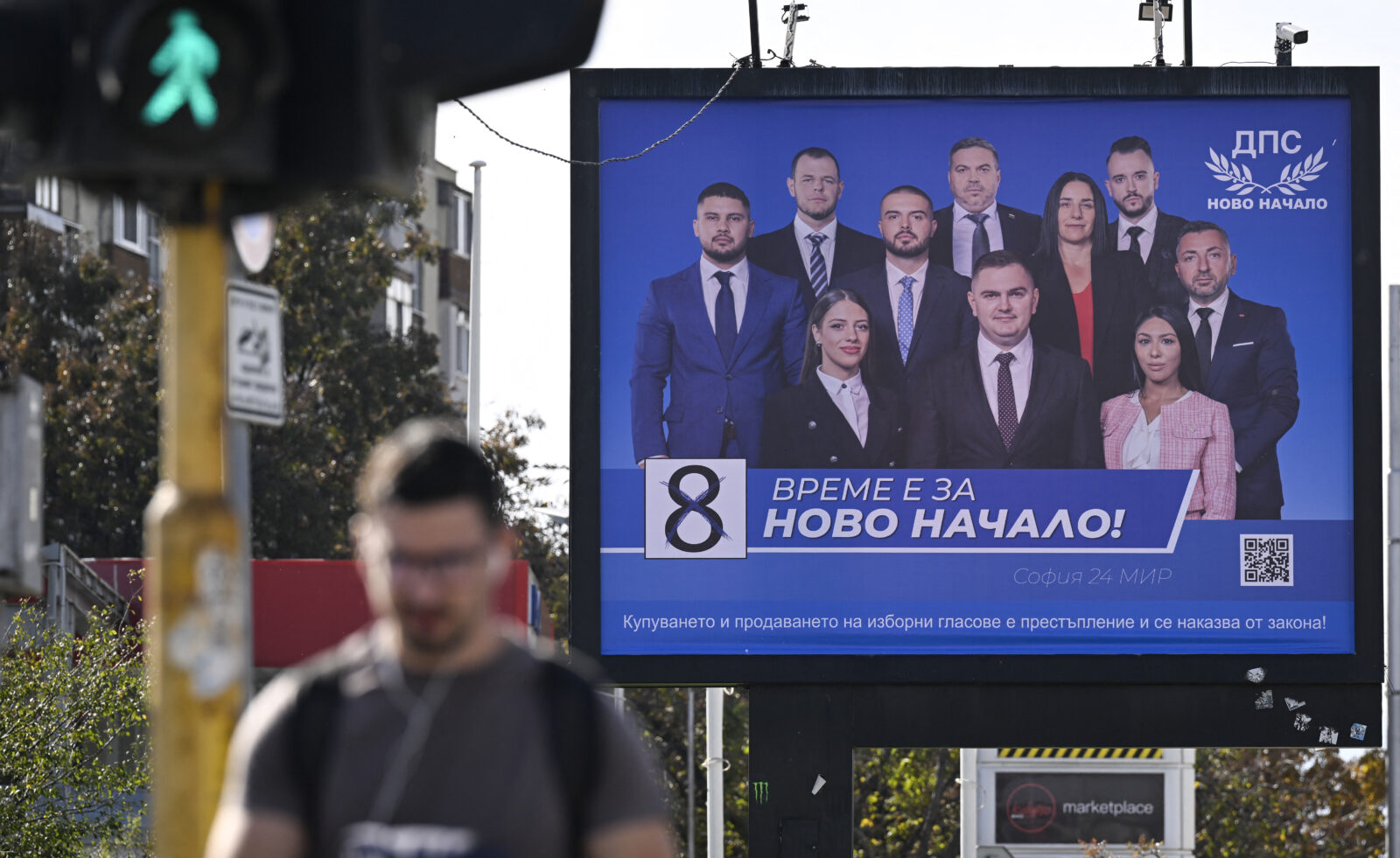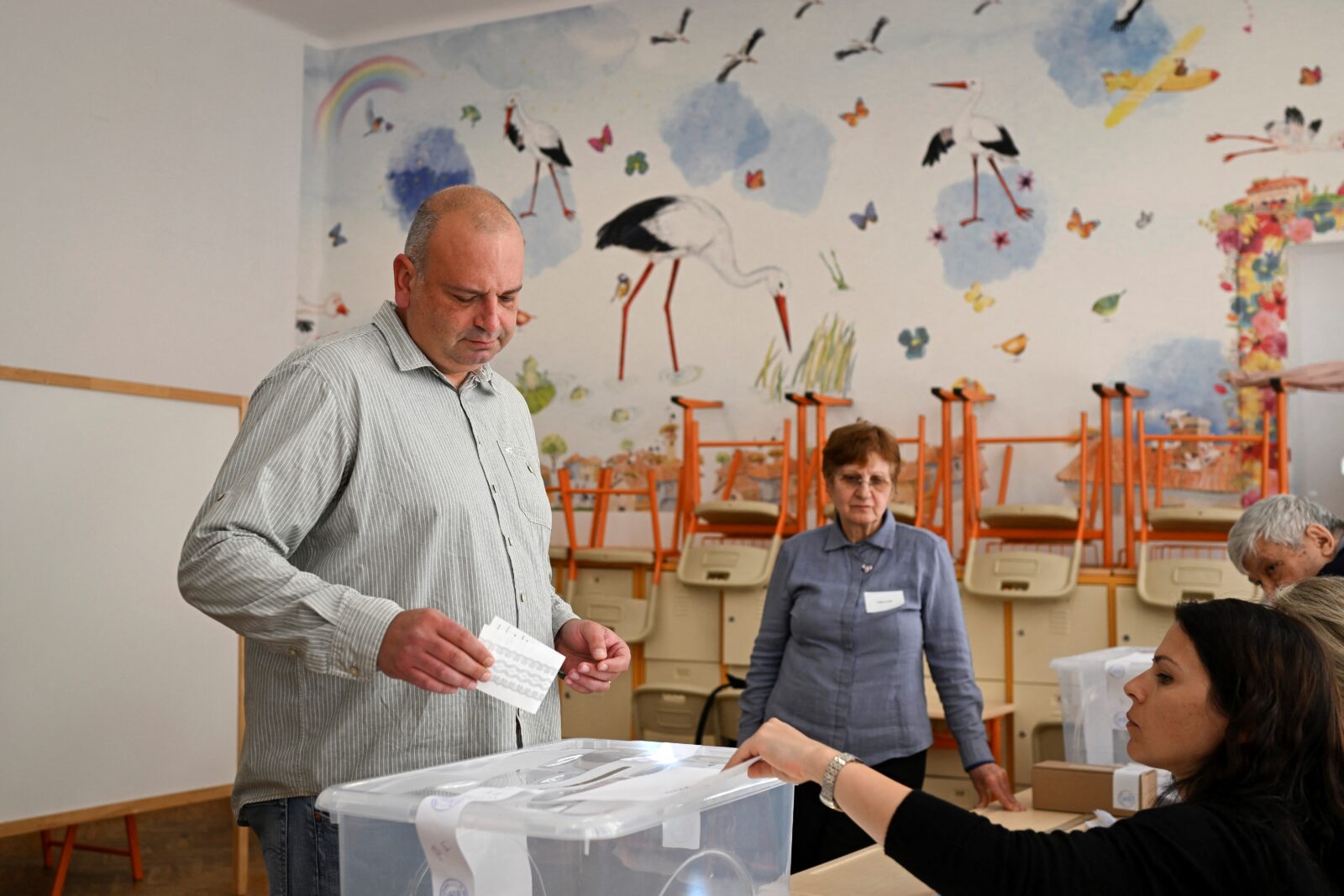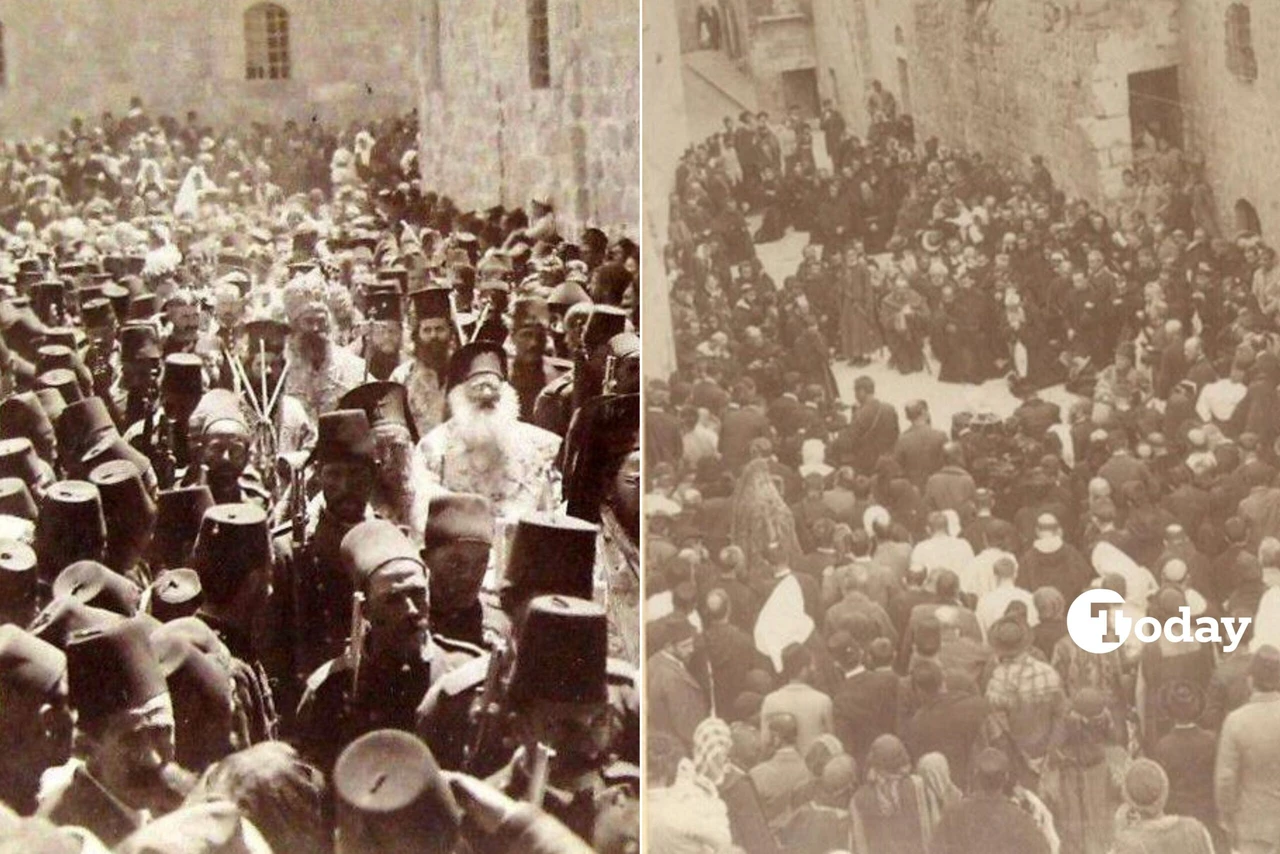Bulgaria’s conservative GERB Party leads elections but falls short of majority
 Head of GERB party and former prime minister Boyko Borisov casts his ballot at polling station during Bulgaria's parliamentary elections in Sofia, October 27, 2024. (AFP Photo)
Head of GERB party and former prime minister Boyko Borisov casts his ballot at polling station during Bulgaria's parliamentary elections in Sofia, October 27, 2024. (AFP Photo)
The conservative GERB party, led by former Prime Minister Boyko Borisov, secured the most votes in Bulgaria’s general election Sunday, according to exit polls. However, the party fell short of a majority needed to break the country’s prolonged political impasse.
In the seventh election in four years, GERB earned between 25% and 27% of the vote, a similar outcome to the last election in June. The reformist coalition PP-DB followed with around 15%, while the pro-Russia ultra-nationalist Vazrazhdane party came in third with about 13%.
Since 2020, Bulgaria has been mired in political gridlock following anti-corruption protests that ousted Borisov’s government. The country has failed to establish a stable administration, with six consecutive elections resulting in deadlock. GERB is once again expected to face difficulty in forming a coalition in a fragmented parliament, where seven to nine parties are projected to win seats.

Growing apathy, rising far-right influence in Bulgaria
Voter turnout increased slightly from June’s record low of 34%, reaching 35% an hour before polls closed. However, many Bulgarians remain disillusioned. “We’re fed up,” said Aneliya Ivanova, a 33-year-old IT worker in Sofia. “Every time, it’s the same result.”
The political stalemate has benefited far-right groups like Vazrazhdane, which has gained traction by advocating for Bulgarian sovereignty and rejecting foreign influence. The party pushed through a controversial anti-LGBTQ law modeled after Russian legislation earlier this year, further boosting its popularity. Despite Bulgaria’s membership in NATO, many citizens remain pro-Russia.
Challenges ahead for GERB
GERB, which supported the anti-LGBTQ law, may find itself aligned with Vazrazhdane, although Borisov has stressed that his “partners in Brussels and Washington won’t allow that.”
Throughout his time as prime minister, Borisov maintained a careful balance between aligning with the West and preserving ties with Moscow. Since Russia’s invasion of Ukraine, he has backed Kyiv in line with other European Union and NATO members.

Bulgaria’s political deadlock has stalled critical reforms and delayed the country’s ambitions to join the eurozone and Schengen Area. Public prosecutors launched hundreds of investigations into electoral fraud ahead of Sunday’s vote, arresting more than 70 people for vote-buying.
With no clear path to stability, the cost of organizing seven elections in four years has reached nearly 400 million euros ($433 million), further straining Bulgaria’s economy and future.



